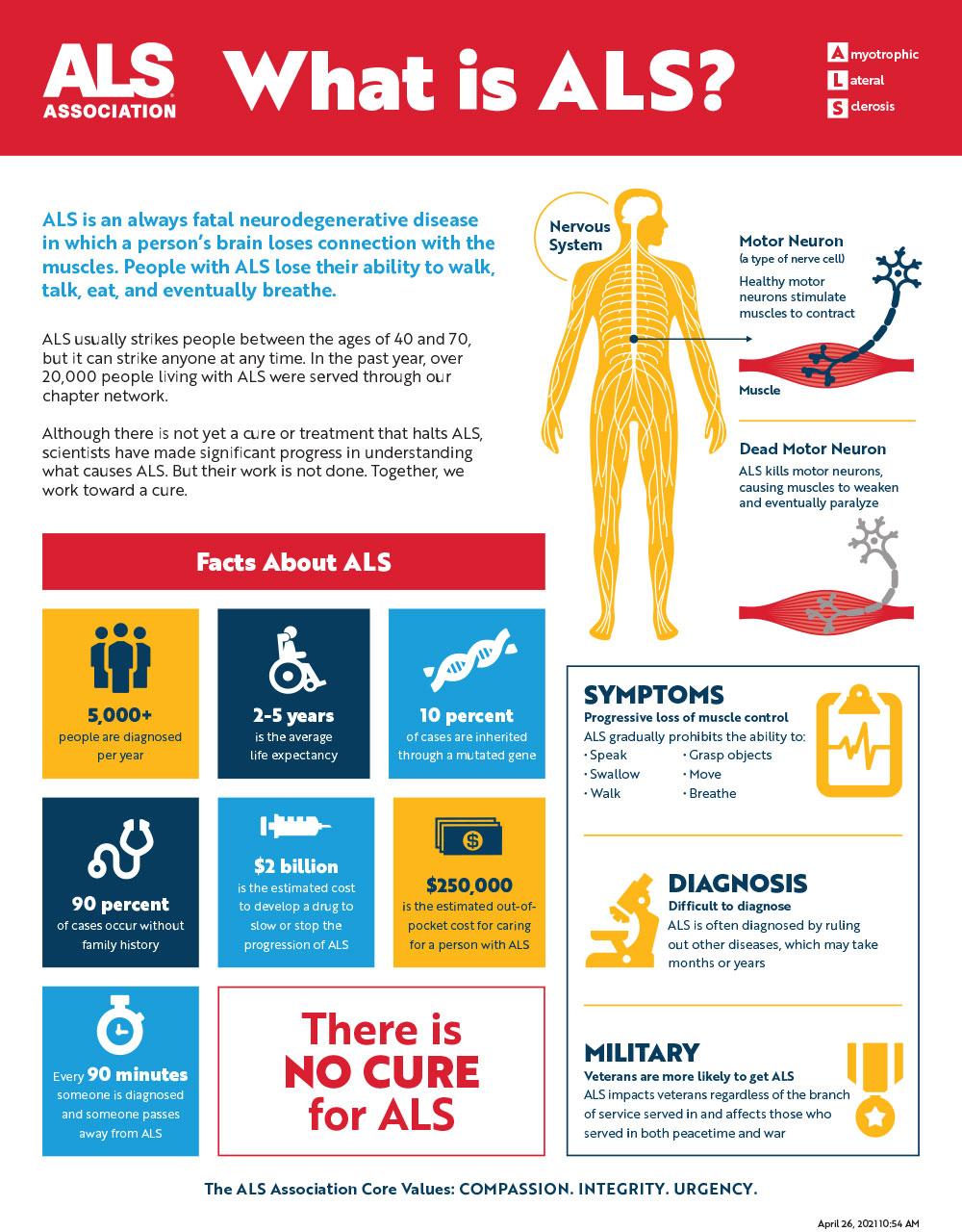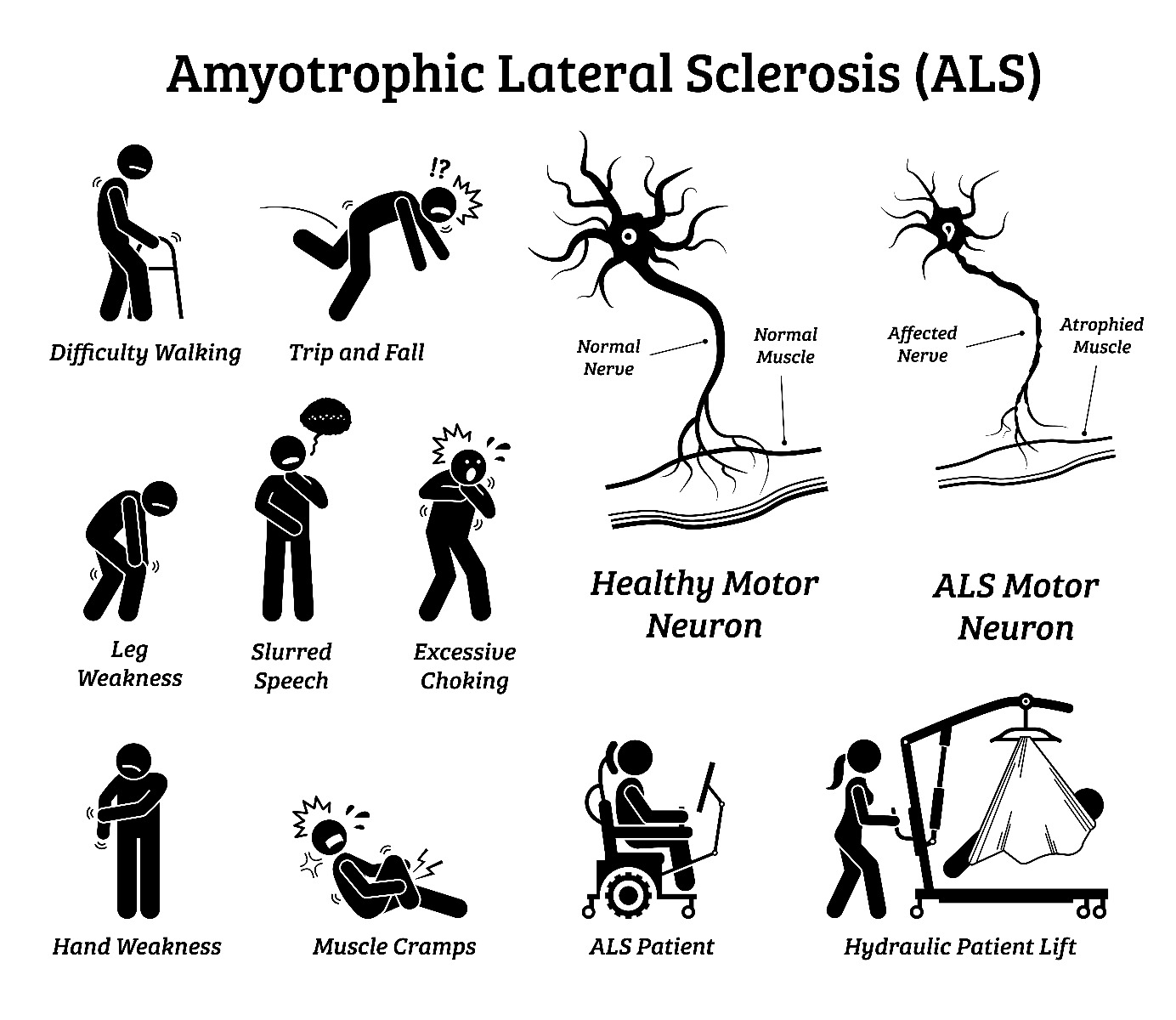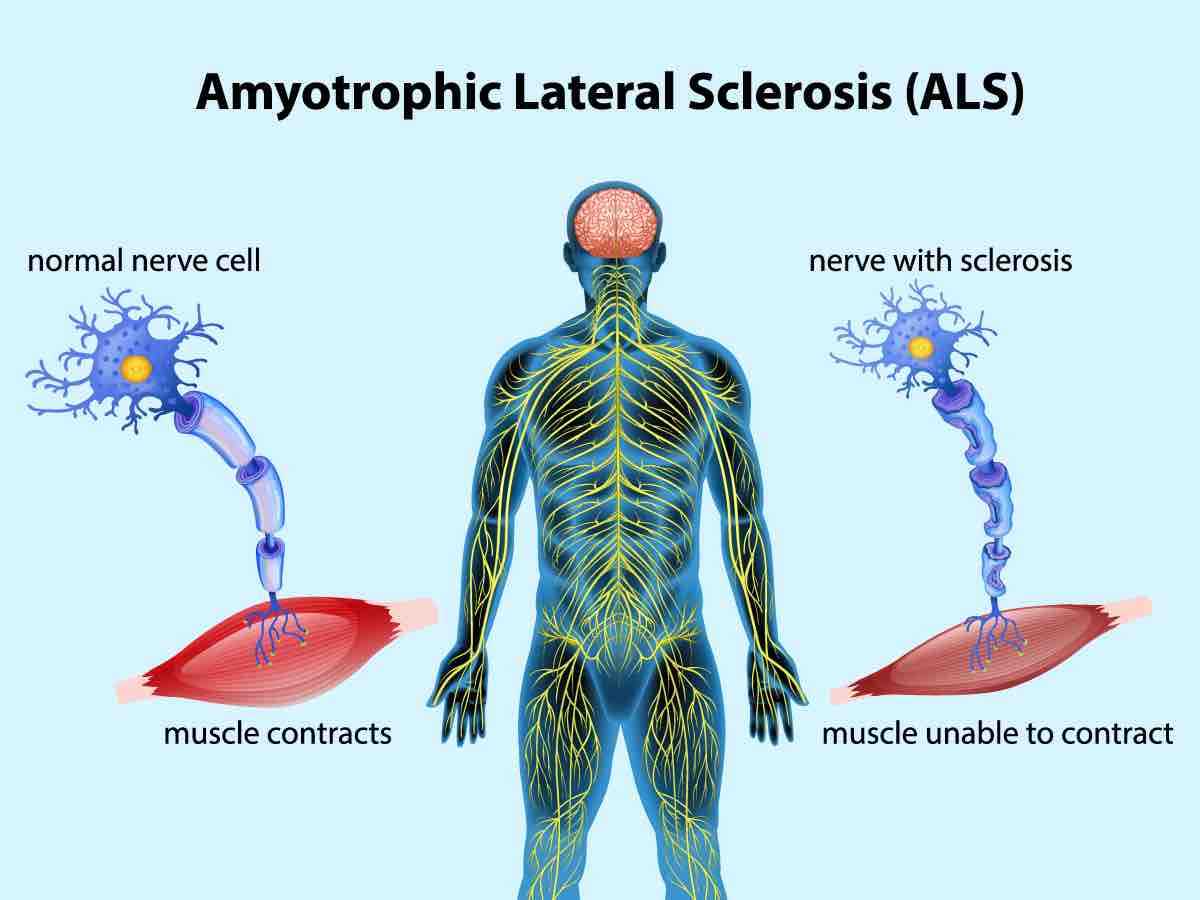Als Famous Patients: Understanding The Impact Of A Difficult Condition
Learning about als famous patients can truly open your eyes to the wide reach of this serious condition. It is a progressive illness that affects people from all walks of life, including some very well-known individuals. Their stories, you know, really help bring attention to the challenges faced by many others living with this illness today.
Amyotrophic lateral sclerosis, often called ALS, is a neurodegenerative disease. It affects the nerve cells in your brain and spinal cord, which are the very cells that control voluntary movement. This means things like walking, talking, and even breathing can become increasingly difficult over time, so it's a condition that truly changes lives.
When someone famous shares their journey with ALS, it shines a bright light on the condition. This helps everyone understand what ALS is, how it progresses, and why finding better ways to manage it, and eventually a cure, is so important. We will look at some of these well-known individuals and their experiences, which, honestly, are quite moving.
Table of Contents
- What is ALS? A Look at the Condition
- Lou Gehrig: The Iron Horse and His Legacy
- Stephen Hawking: A Mind Beyond Limits
- The Broader Impact of als famous patients
- Living with ALS: Support and Hope
- Common Questions About ALS
What is ALS? A Look at the Condition
The Basics of Amyotrophic Lateral Sclerosis
Amyotrophic lateral sclerosis, or ALS, is a progressive neurodegenerative disease. It affects the nerve cells in the brain and spinal cord that control voluntary movement. These nerve cells, called motor neurons, degenerate over time, which, you know, causes a worsening loss of muscle control.
The early signs of ALS often show up as muscle twitching and weakness. This might start in an arm or a leg, or someone might have trouble swallowing or experience slurred speech. As the disease moves along, it affects the muscles needed to move, swallow, and even breathe, so it's a truly challenging condition for those affected.
ALS is also known as motor neuron disease (MND) or, in the United States, Lou Gehrig's Disease. It is the most common degenerative disease affecting the adult motor system. Sadly, there is no cure for ALS yet, which makes the stories of als famous patients all the more important for understanding this illness.
Lou Gehrig: The Iron Horse and His Legacy
A Baseball Legend's Story
Lou Gehrig, a legendary baseball player, is perhaps the most famous person connected to ALS. The disease is, in fact, often called Lou Gehrig's Disease because of his public battle with it. He was a powerful first baseman for the New York Yankees, known for his incredible strength and endurance, playing in a record number of consecutive games, which is pretty amazing.
His diagnosis in 1939 shocked the world. Gehrig's courageous farewell speech at Yankee Stadium, where he declared himself "the luckiest man on the face of the earth," touched countless hearts. His openness about his illness brought unprecedented attention to ALS, a condition that, before him, was largely unknown to the general public. His story, you see, was a powerful moment in medical history.
His experience showed everyone the devastating effects of ALS, which causes progressive degeneration of nerve cells in the spinal cord and brain. It led to a greater awareness of the disease and spurred early efforts to understand it better. Gehrig's name remains linked to ALS, serving as a constant reminder of the human impact of this progressive neurodegenerative disorder, and that's really important.
Personal Details and Bio Data
| Category | Details |
|---|---|
| Profession | Professional Baseball Player |
| Known For | His athletic achievements and being the namesake for ALS |
| Impact on ALS Awareness | Significantly increased public knowledge and understanding of the disease |
Stephen Hawking: A Mind Beyond Limits
The Brilliant Physicist's Fight
Another incredibly well-known figure among als famous patients is Stephen Hawking. He was a brilliant theoretical physicist and cosmologist whose work profoundly shaped our understanding of the universe. Diagnosed with ALS at a young age, he defied expectations by living with the condition for decades, which is truly remarkable, frankly.
Despite the severe physical limitations imposed by ALS, which caused a worsening loss of voluntary muscle control, Hawking continued his groundbreaking research and communicated through a voice synthesizer. His ability to contribute so much to science while living with such a challenging illness inspired millions globally. It showed the world that a mind, even when the body is affected, can remain incredibly active and productive, so that's a powerful message.
Hawking's long life with ALS, which is typically a fatal type of motor neuron disease, provided valuable insights for medical professionals. His journey highlighted the diverse ways ALS can progress and the importance of assistive technologies for those living with the condition. His story, you know, offers a lot of hope and shows how much is possible even with severe physical challenges.
Personal Details and Bio Data
| Category | Details |
|---|---|
| Profession | Theoretical Physicist, Cosmologist, Author |
| Known For | Groundbreaking work in physics and his long life with ALS |
| Impact on ALS Awareness | Demonstrated resilience and intellectual vitality despite severe physical limitations |
The Broader Impact of als famous patients
Raising Awareness and Driving Research
The stories of als famous patients like Lou Gehrig and Stephen Hawking have had a profound impact far beyond their personal lives. Their experiences brought ALS, a rare neurodegenerative disorder, into the public conversation. This increased visibility, you see, is absolutely vital for a condition that affects nerve cells in the brain and spinal cord, causing progressive degeneration.
When well-known people speak about their health challenges, it often sparks greater public interest and empathy. This can lead to more funding for research, better support services for patients, and a deeper general understanding of the disease. Their public journeys help to demystify ALS, which typically causes muscle weakness that gets worse over time, affecting movements, swallowing, and breathing.
Because of these individuals, and many others, awareness campaigns have gained significant traction. This has helped push forward the search for effective treatments and, eventually, a cure for ALS. Their experiences underscore the urgent need for continued scientific investigation into this condition, which, as a matter of fact, is the most common form of the broader group of motor neuron diseases.
The attention generated by als famous patients also encourages people to learn more about the early symptoms of ALS, which tend to affect your extremities first, like an arm or a leg. It helps people recognize the signs, such as trouble swallowing or slurred speech, and seek medical advice sooner. This increased understanding is a truly valuable part of their legacy.
Living with ALS: Support and Hope
Managing Daily Life with ALS
Living with ALS presents many daily challenges, as it causes a worsening loss of voluntary muscle control. Individuals might experience gradual muscle stiffness, twitches, weakness, and wasting. Despite these difficulties, there are many ways to support quality of life for those with ALS, which, you know, can make a real difference.
Supportive care often involves a team of healthcare professionals who help manage symptoms and maintain independence for as long as possible. This can include therapies to help with movement, speech, and swallowing. The goal is to address the physical changes that occur as the disease affects nerve cells in the brain and spinal cord, which is quite a task.
Family members and caregivers play a truly vital role in providing daily assistance and emotional support. Learning about ALS and its progression, which leads to muscle weakness that gets worse over time, helps them provide the best possible care. Resources from organizations dedicated to ALS research and patient support can also be incredibly helpful, offering guidance and a sense of community. You can learn more about support options from a reputable health organization, for instance.
The Future of ALS Research
While there is no cure for ALS yet, research continues to move forward. Scientists are working tirelessly to understand the exact cause of the disease, which is still not fully known, though a small number of cases are inherited. They are looking for new treatments that can slow the progression of the illness or even stop it altogether, which is the ultimate goal, naturally.
The public awareness raised by als famous patients helps to fuel these research efforts. Every new discovery, every clinical trial, brings us closer to a breakthrough. It is a long process, but the dedication of researchers, doctors, and patient advocates offers significant hope for the future. The ongoing studies aim to find ways to protect the motor neurons that control voluntary movement, which are affected by this progressive neurodegenerative disease.
Continued support for research and awareness initiatives remains absolutely critical. The more we learn about ALS, the better equipped we become to develop effective interventions. The collective effort, you see, of the scientific community and the public is truly powerful in the ongoing fight against this challenging condition.
Learn more about on our site, and you can also find more information about this condition .
Common Questions About ALS
Frequently Asked Questions
What are the early signs of ALS?
The early signs of ALS often begin subtly. People might notice muscle twitching or weakness in an arm or a leg. Some individuals experience trouble swallowing or slurred speech as initial symptoms. These early changes tend to affect your extremities first, so that's something to look out for.
Is ALS inherited?
ALS is rare, and the exact cause is still not known in most cases. However, a small number of cases are inherited. This means that while most cases are sporadic, a genetic link exists for a minority of people with the disease, which is an important distinction, really.
Is there a cure for ALS?
As of now, there is no cure for ALS. It is a terminal neurodegenerative disorder that causes progressive degeneration of nerve cells in the spinal cord and brain. While there are treatments that can help manage symptoms and improve quality of life, they do not stop the disease's progression, yet, sadly.

What is ALS? - Amyotrophic Lateral Sclerosis | The ALS Association

Daily Aids for People with ALS (Lou Gehrig’s Disease) | Performance Health

Amyotrophic lateral sclerosis (ALS) - York Rehab Clinic